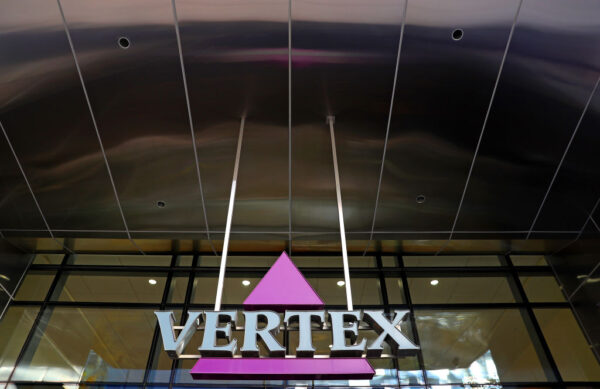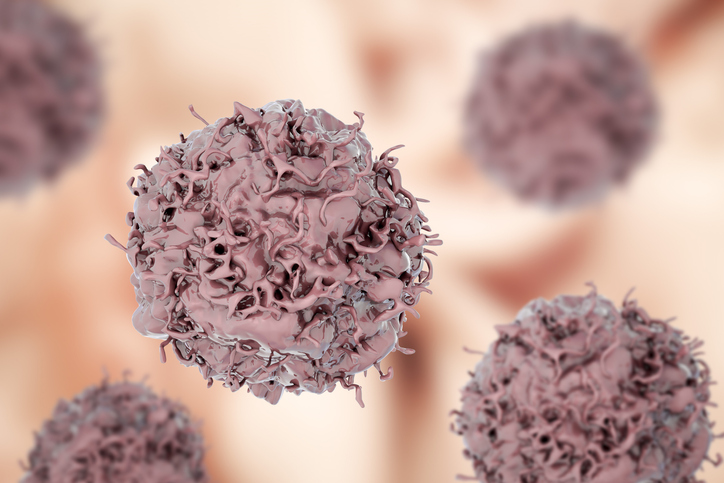
Vertex Pharmaceuticals is acquiring immune therapies developer Alpine Immune Sciences in a $4.9 billion deal whose centerpiece is a Phase 3-ready drug for a chronic kidney disorder with few treatment options. While Vertex frames the drug as a prospective blockbuster in this indication alone, the opportunity goes beyond kidney disease. Clinical development already underway could pave the way in a range of immunological disorders, giving the molecule pipeline-in-a-product potential.
According to terms of the agreement, Boston-based Vertex will pay $65 cash for each share of Alpine. That’s a more than 38% premium to Alpine’s closing price on Wednesday, just prior to the announcement of the deal.
Alpine develops protein-based therapies for autoimmune and inflammatory diseases. Those proteins are made with proprietary technology that takes native immune system proteins and engineers them with properties that make them better for therapeutic applications. The lead program of Seattle-based Alpine is a fusion protein called povetacicept (formerly ALPN-303). Povetacicept’s lead disease target is IgA nephropathy (IgAN), an autoimmune condition in which the buildup of immunoglobulin A protein leads to kidney damage. Also known as Berger disease, the chronic condition can eventually lead to end-stage renal disease. According to Vertex, 130,000 people in the U.S. have IgAN.

With the Rise of AI, What IP Disputes in Healthcare Are Likely to Emerge?
Munck Wilson Mandala Partner Greg Howison shared his perspective on some of the legal ramifications around AI, IP, connected devices and the data they generate, in response to emailed questions.
The deal comes as Alpine has updated IgAN data from an open-label Phase 1b/2a study. As of March 1, 41 patients had received either a high or low dose of povetacicept, which is administered as a subcutaneous injection every four weeks. According to results released after market close Wednesday, in the six patients who had reached 36 weeks of treatment with the low dose, Alpine reported a clinically meaningful 64.1% reduction in proteinuria, which is the level of proteins in urine that are associated with kidney disease. This reduction was associated with stable renal function as assessed by estimated glomerular filtration rate (eGFR), a measure of kidney function. All four of the patients for whom data were available at 36 weeks showed resolution of hematuria, or blood in the urine.
At the high dose, Alpine reported proteinuria and hematuria results at weeks 12 and 24 that were similar to results in the low-dose group. Both doses were well tolerated and no infections were reported. The data have been accepted for presentation next week during the World Congress of Nephrology annual meeting in Buenos Aires, Argentina.
“We have seen these data and they are impressive,” Vertex CEO Reshma Kewalramani said, speaking during a Wednesday evening conference call.
Earlier in her career, when she was a practicing nephrologist, treatment of renal diseases was mainly recycling medicines approved for cardiovascular or endocrinological diseases, Kewalramani said. What’s different now that there is greater understanding of the genetics of renal disease and drugs are now being developed to address underlying causes.
Kewalramani acknowledged that drugs have recently won FDA approvals for IgAN. The first therapy specifically approved for the disease was Tarpeyo, a corticosteroid developed by Calliditas Therapeutics. Travere Therapeutics’ Filspari is a small molecule that treats IgAN by blocking two pathways associated with the disorder (Filspari’s future is in question after the drug failed the confirmatory study required of its accelerated approval). But Kewalramani said those drugs don’t address the underlying cause of IgAN.
Alpine engineered povetacicept to block two targets: B cell activating factor (BAFF) and a proliferation inducing ligand (APRIL). Others are pursuing these targets. Amgen is developing a BAFF-blocking drug. The APRIL-blocking camp includes Otsuka Pharmaceutical subsidiary Visterra. Novartis is taking multiple approaches to IgAN, including a drug candidate for BAFF and another for APRIL. Vera Therapeutics might be the closest competitor with a fusion protein that blocks both BAFF and APRIL, but with once-weekly dosing. Startups have also entered the IgAN field with drugs that address other targets. Kewalramani said the Alpine drug’s intervention in both BAFF and APRIL with once-monthly dosing makes it best in class. But the Phase 2 results still need to be demonstrated in a Phase 3 study. Vertex expects this study will begin in the second half of this year.
Current clinical development of povetacicept spans two basket studies, one evaluating the drug in autoimmune diseases, including IgAN and lupus nephritis, and the other testing it in autoimmune cytopenias. Kewalramani said these studies are likely to yield multiple clinical readouts later this year, offering additional opportunities for advancement. Jeffrey Leiden, Vertex’s executive chairman and the company’s former CEO, acknowledged that other companies are pursuing these diseases. But he said a dual inhibitor of both BAFF and APRIL could stand apart in a crowded field.
“It remains to be seen, but I think one of the interesting things here is that by inhibiting BAFF and APRIL, we may not only just decrease autoantibody secretion, which clearly it does, we may actually have disease-modifying capability in some of these diseases,” Leiden said.
Alpine was founded in 2015. The company went public two years later via a reverse merger. The company initially focused on developing drugs for both cancer and autoimmune diseases, but abandoned cancer following safety setbacks in clinical trials.
The Vertex and Alpine boards of directors have approved the acquisition, which is expected to close later this quarter. When it does, povetacicept will join a Vertex pipeline that includes inaxaplin, a small molecule in pivotal testing for APOL-1 mediated kidney disease, and VK-407, a small molecule in Phase 1 development for autosomal dominant polycystic kidney disease.
[The following two paragraphs added with analyst comments.] In a note sent to investors Thursday, William Blair analysts Myles Minter and Sami Corwin said the Alpine acquisition adds protein engineering and immunotherapy expertise to Vertex’s toolbox. The deal also augments Vertex’s nephrology portfolio.
“We believe povetacicept is a best-in-class therapy, with preclinical data supporting its high potency and affinity and clinical data demonstrating it can provide disease-modifying benefit with less frequent injections compared to other BAFF/APRIL-targeting molecules,” Minter and Corwin wrote. “Given povetacicept could have applications beyond IgAN, we see it potentially becoming a multibillion-dollar product.”
Photo: David L. Ryan/The Boston Globe, via Getty Images














